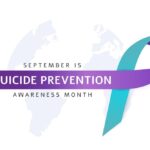For a long time, social media has been demonized for contributing to poor mental health for users. How does social media cause us harm, and are there any ways that it can be helpful? At Palms Behavioral Health, in Harlingen, Texas, we think it’s important for people to make informed choices about the things that can impact their mental health.
The Negatives of Social Media Usage
When we just hear that something is bad for us, it’s easy to dismiss that information. Sometimes, it’s more beneficial to understand the specific ways in which research has shown something could be harmful. Social media has been connected to:
- Increased anxiety symptoms
- Insomnia
- Depression
- Higher stress levels
The studies that found these results also stated that the severity of the issues was proportional to the amount of time that the person spent using social media, so people who used social media the least typically had the most minor symptoms.
The Positives of Social Media Usage
There are also benefits to using social media, but these depend on the ways in which a person chooses to engage with the online platforms. Social media can:
- Help people connect with others, to decrease their loneliness and isolation
- Make it easier for people to recognize that they need mental health support and help them find professional assistance
- Allow people to identify better self-care practices, to nurture their mental health on their own
- Give mental health experts the opportunity to engage patients in new ways, which may allow them to reach people who would not otherwise participate in therapeutic interventions
Adolescents and Social Media
Teenagers are especially vulnerable to the negatives of social media, with additional negatives for this age group including:
- Feeling rejected by peers, who may be engaging in activities without them
- Comparing themselves unfavorably against others’ photos and posts
- Cyberbullying and harassment
- Information overload, particularly bad news about world events
- Potential interactions with unsafe people
That’s not to say that adolescents don’t also reap some benefits of social media:
- Identity exploration is a big part of becoming a young adult, and social media is one way that teens, especially those in rural areas, can help them to decide how they want to develop themselves and find other people they can relate to
- Social media can be a great way to stay connected with people. This can be an asset as young people finish high school, and their peers all go in different directions. Maintaining friendships over distance can be easier with social media.
- Teens can use social media to expand their knowledge. Information about new interests, hobbies, books, and more is at the fingertips of young people who want to find it.
- Young people who want to engage in activism can use social media as a tool to connect with like-minded people and learn about issues that matter to them.
Making Social Media Work for You
Understanding the broad risks and potential benefits of social media is the first step in ensuring that you get the most out of your online experiences. Being more mindful of your own social media usage can help you identify how it could be hurting or helping you specifically. Ask yourself:
- What benefits do you get from using social media?
- Are there other ways you can get those benefits?
- Have you experienced negative results from using social media as you do currently?
- How might your life be different if you spent less time online?
- How much time are you spending online each day? What else could you do with that time?
- Are you using social media as a way to avoid something else?
Some additional steps you can take to ensure social media is helping you and not harming you include:
- Limiting how much time you spend on social media by using your phone settings to lock social media apps after you’ve used them for a certain amount of time each day.
- Prioritizing your in-person interactions. Use social media to schedule face-to-face time with people who matter to you.
- Unfollowing or unfriending accounts whose posts don’t increase your knowledge or happiness.
At Palms Behavioral Health, we treat adolescents, adults, and older adults who need support managing their mental health. We offer inpatient and outpatient programming in a nurturing environment that allows people in various stages of their treatment journey to continue to recover and grow.






